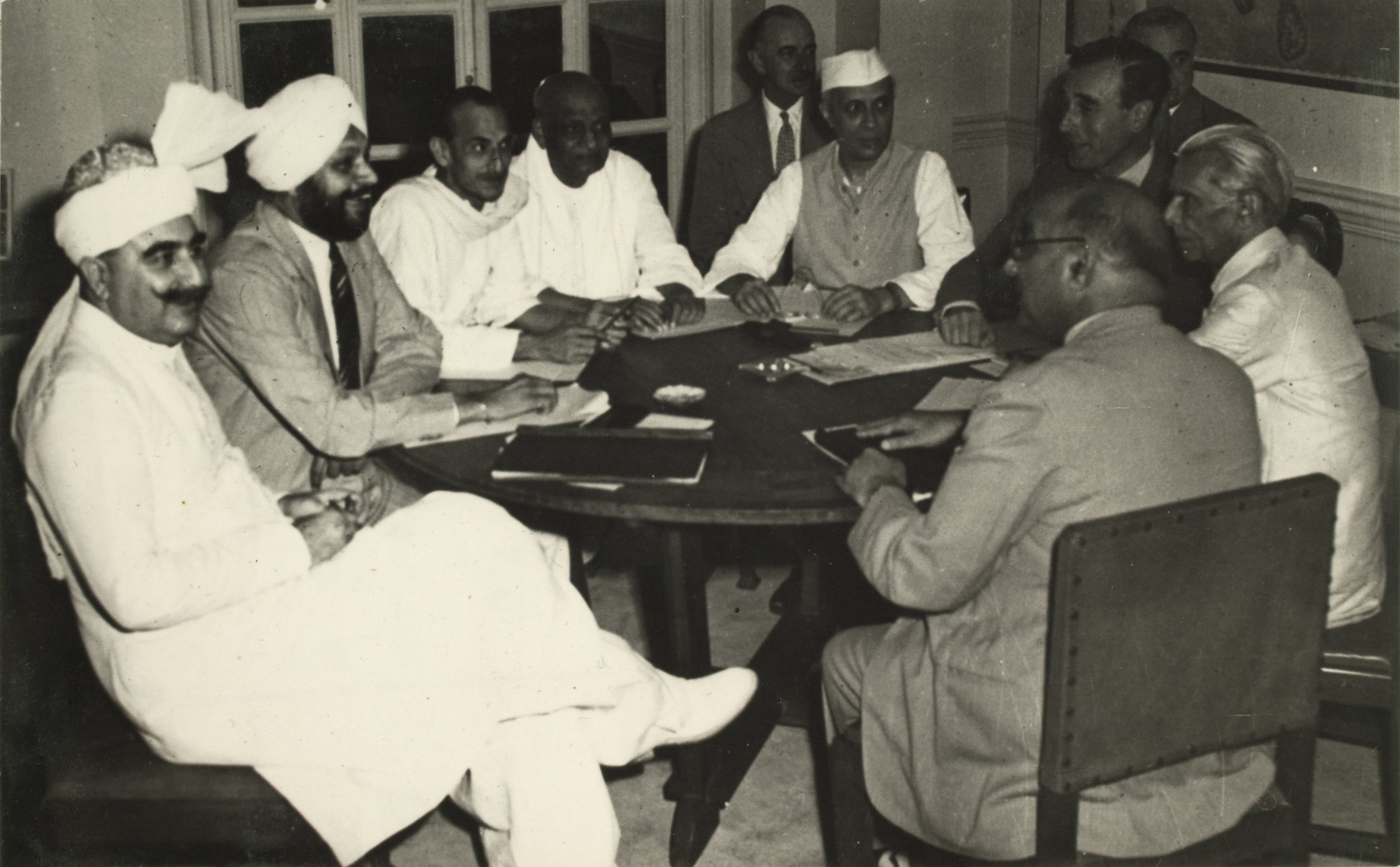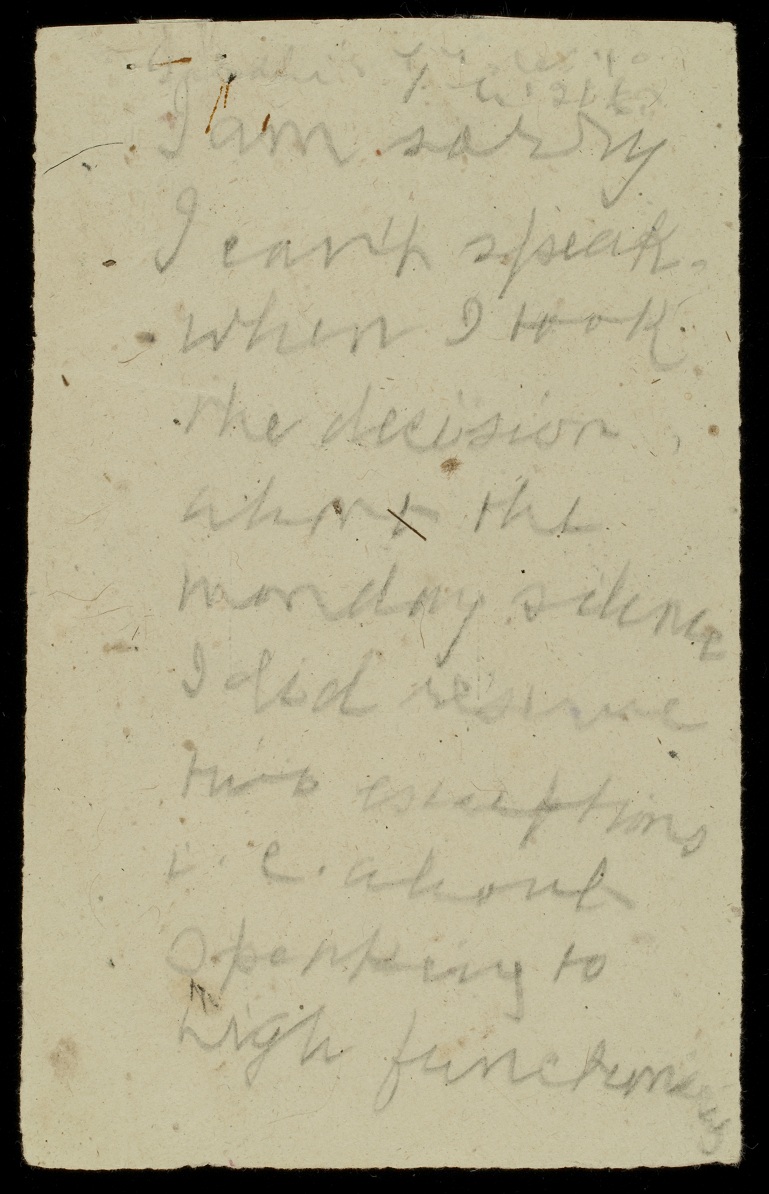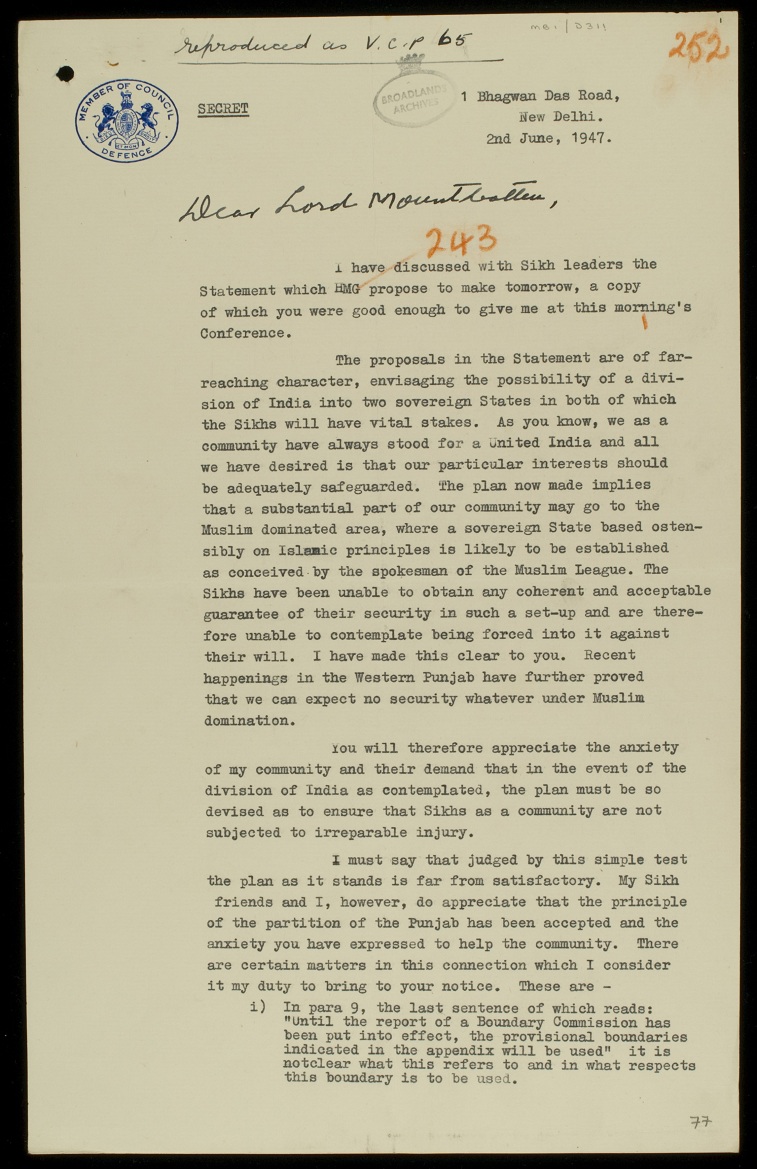Latest Contributions
Read More Contributions
Acceptance of India's Partition by Indian leaders - June 2 1947
Category:
Tags:
 In the photograph, at the table, from left to right: Abdul Rab Nishtar, Sardar Baldev Singh, Acharya Kriplani, Sardar Patel, Jawaharlal Nehru, Lord Mountbatten, Mohammed Ali Jinnah, and Liaqat Ali Khan.
In the photograph, at the table, from left to right: Abdul Rab Nishtar, Sardar Baldev Singh, Acharya Kriplani, Sardar Patel, Jawaharlal Nehru, Lord Mountbatten, Mohammed Ali Jinnah, and Liaqat Ali Khan.Editor's note: I have asked R C Mody, who was 21 years old in 1947, to put this photograph in the context of the situation in India at that time. Mr. Mody remembers those days clearly, and has contributed many memories to his website. Mr. Mody writes:
This photograph shows seven Indian leaders sitting around a round table in the Viceroy's study in Viceroy's House (now Rashtrapati Bhawan) in New Delhi in the forenoon of June 2, 1947, along with Lord Mountbatten, the Viceroy of India. Several of the Indian leaders were members of the Interim Government that had been formed on 2nd September 1946 in anticipation of India's Independence. Lord Mountbatten was the President of the Executive Council, and the Indian leaders were Members of this Council, which functioned as a Council of Ministers. Three of the India leaders represent the Indian National Congress (Congress), another three represent the Muslim League (League), and the seventh one represents the Sikh community.
The three leaders representing the Congress are:
- Jawaharlal Nehru, then Vice President of India's Interim Government and Member, External Affairs. Nehru's posts were commonly seen as equivalent to that of Prime Minister and External Affairs Minister. However, Jinnah called this equivalence with being the Prime Minister as a figment of the imagination of Hindu newspapers, emphasizing that Nehru was only a Member for External Affairs in the Viceroy's Executive Council, and nothing more.
- Sardar Patel, then Home Member of the Interim Government.
- Acharya J. B. Kriplani, then President of the Congress.
The three leaders representing the League are:
- Mohammed Ali Jinnah, then President of the League.
- Liaqat Ali Khan, then Finance Member of the Interim Government, and recognized as the number two leader in the League.
- Abdul Rab Nishtar, then Member for Posts &\; Air of the Interim Government.
The seventh Indian leader is Sardar Baldev Singh, representing the Sikhs. He was Defence Member of the Interim Government at that time.
Sitting behind the table, to the left, is Sir Eric Mieville, a key adviser to the Viceroy, and the other person is General Lord Ismay, chief of staff to the Viceroy.
V P Menon, then the Constitutional Advisor to the Viceroy, was not present at the meeting, although he had accompanied the Viceroy to England to seek approval of the Plan. I believe that Menon was actually the brain behind it the Plan. The feeling had grown by then that Menon had become too close to Patel and Nehru, in that order, and was no longer an impartial civil servant.
In this picture, the Viceroy is announcing to the Indian leaders the historic plan for India's Partition and Independence, brought by him from London two days earlier on May 30, 1947. The leaders were asked not to disclose the plan to public till their parties approved it. The Congress Working Committee (the executive body of the Congress) approved it the same night, and Jinnah conveyed anticipatory approval of the League's Council around the same time.
After that it was made public on the evening of June 3, 1947, which is why it is called the 3rd June Plan. Mountbatten, Nehru, Jinnah and Baldev Singh, spoke on All-India Radio, in this order.
I heard the four broadcasts on an improvised radio set in the canal colony of Balloki, near Lahore, and remember that Nehru's broadcast started with the words, "With no joy in my heart".
_______________________________________
© R C Mody 2012
Editor's note: The Viceroy had met Mahatma Gandhi separately on June 2, 1947, as described in the minutes of a meeting held on June 3, 1947. June 2, 1947 fell on a Monday, whihc was normally a day of silence for Mahatma Gandhi. A part of Mahatma Gandhi's written note to the Vicerory is reproduced below.

The complete text of Mahatama Gandhi's note was:
"I am sorry I can't speak. When I took the decision about the Monday silence I did reserve two exceptions, i.e. about speaking to high functionaries on urgent matters or attending upon sick people. But I know you don't want me to break my silence. Have I said one word against you during my speeches? If you admit that I have not, your warning is superfluous. There are one or two things I must talk about, but not today. If we meet each other again I shall speak..."
Source:http://www.soton.ac.uk/supportus/broadlands/stories_archives_gandhi.shtml
Editor's note: Sardar Baldev Singh wrote a letter to the Viceroy on June 2, 1947. The first page of the letter is available at http://www.broadlandsarchives.com/the-independence-of-india-and-pakistan/ and is reproduced below

Comments
Were the leaders truly representative? Part 1
Were the leaders truly representative? Part 2
Add new comment